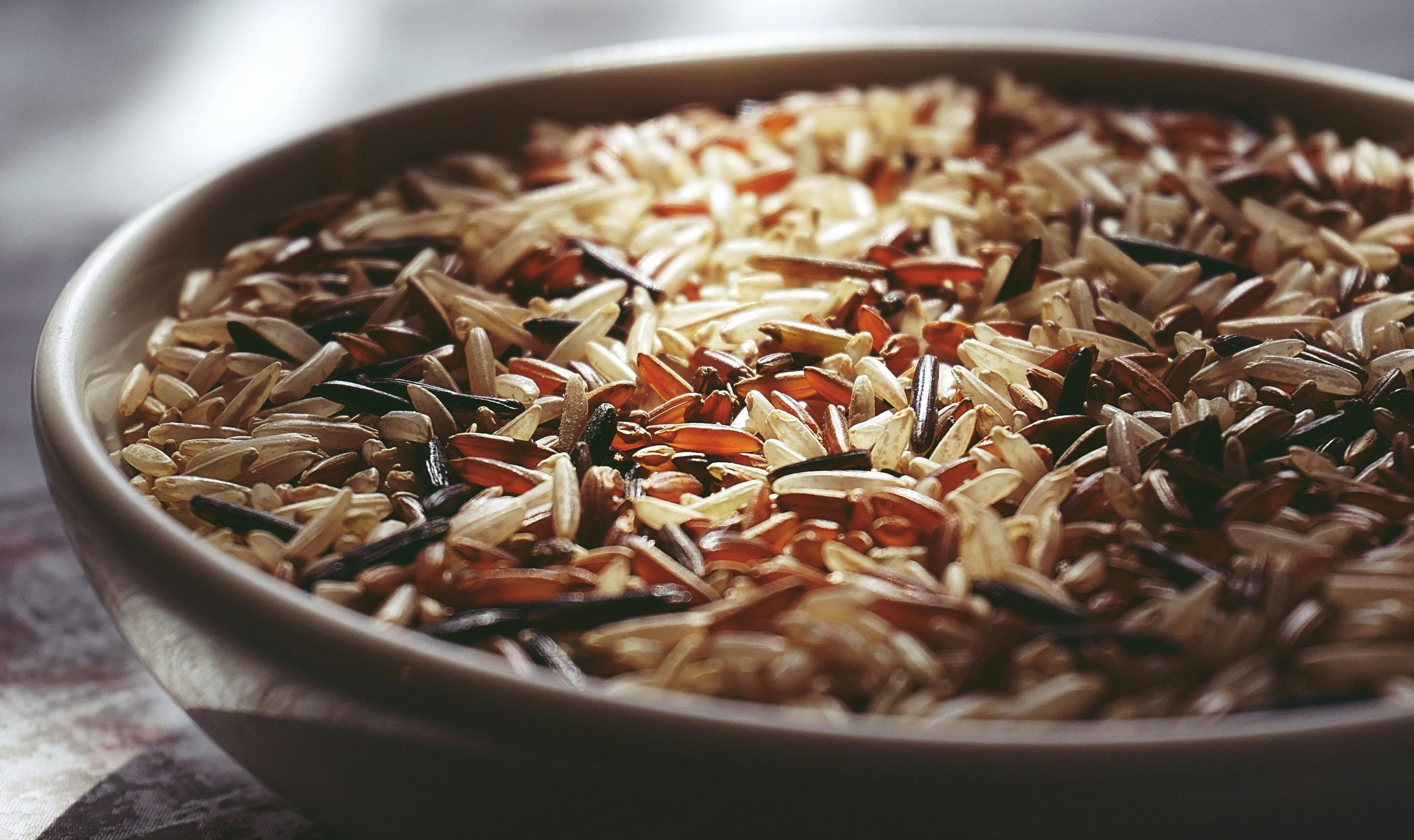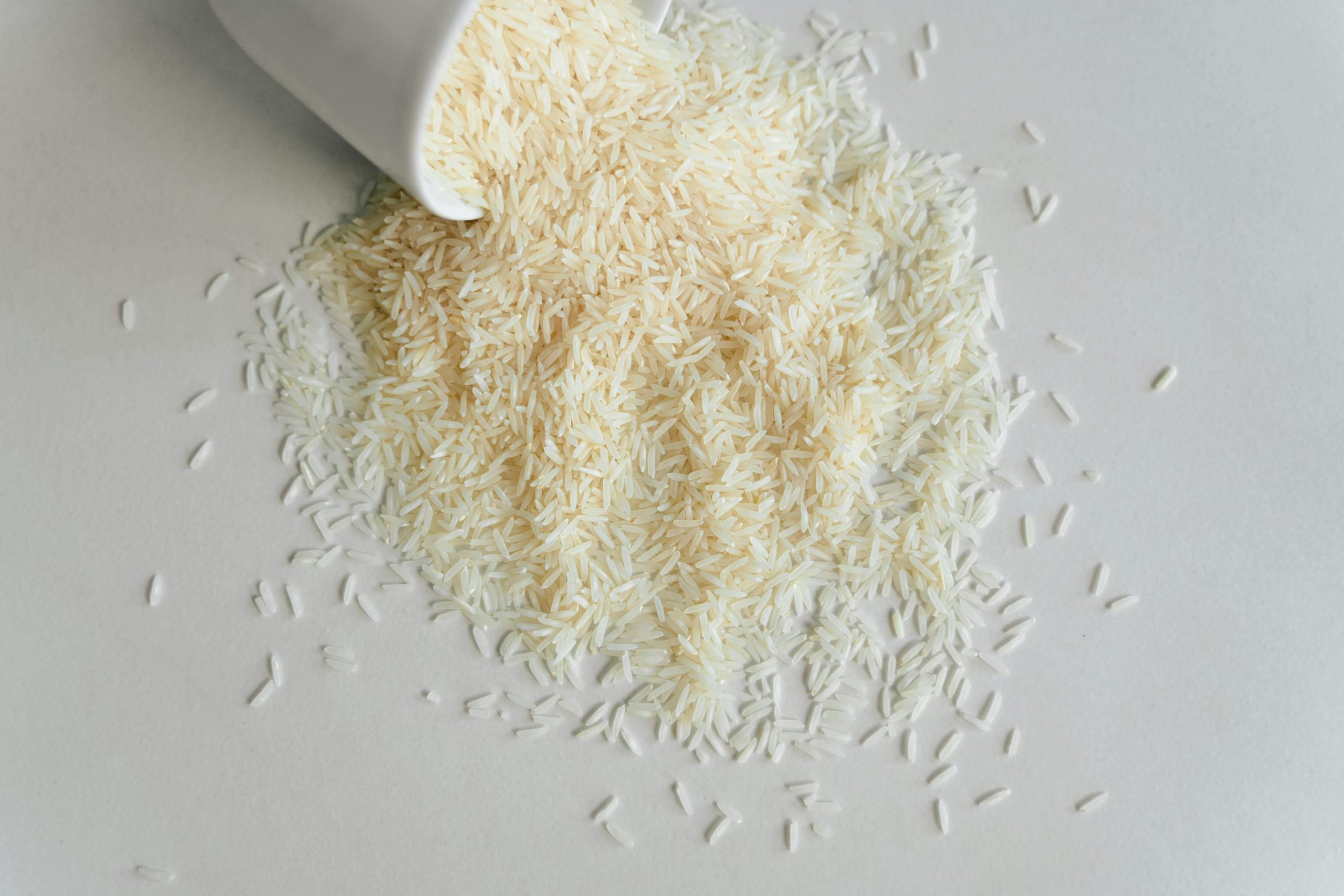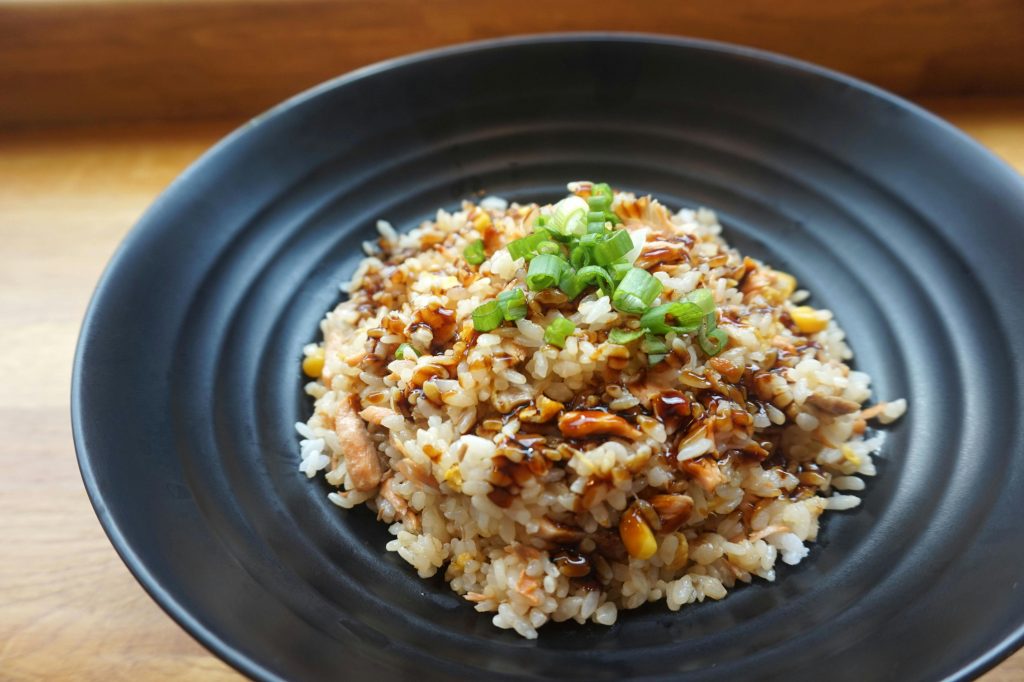Rice is a staple food for billions of people worldwide. It’s affordable, filling, and easy to cook. But as healthy as rice can be in moderation, eating too much of it can have downsides. If you’ve ever asked yourself, “Is too much rice bad for you?”—you’re not alone.
In this article, we’ll break down how rice affects your body, how much is too much, and what smart choices you can make to keep it part of a balanced diet. We’ll also touch on the popular question: does rice make you gain weight?
- Understanding What’s in Rice
- How Much Rice Is Too Much?
- Does Rice Make You Gain Weight?
- The Problem with White Rice
- Health Risks of Eating Too Much Rice
- Different Types of Rice: Choose Wisely
- How to Eat Rice the Healthy Way
- When Rice Can Be Part of a Healthy Diet
- Signs You May Be Eating Too Much Rice
- Final Thoughts: Is Too Much Rice Bad for You?
Understanding What’s in Rice

Before deciding if too much rice is bad, it helps to understand what rice is made of.
- Carbohydrates: Rice is mostly made up of carbs, which your body uses for energy.
- Calories: A 1-cup serving of cooked white rice has around 200 calories.
- Low in Fat: Most rice has very little fat or sugar.
- Low in Fiber: White rice, in particular, has less fiber than other grains like oats or whole wheat.
Brown rice is a bit better nutritionally, with more fiber, vitamins, and minerals. But both types are high in carbs and should be eaten in the right portions.
How Much Rice Is Too Much?
The answer depends on your activity level, age, and health goals. But here’s a general guide:
- 1/2 cup to 1 cup of cooked rice is a healthy serving for most adults.
- Eating 2 to 3 cups or more in one meal regularly can lead to health issues over time.
Why? Large amounts of rice can cause:
- Blood sugar spikes
- Increased calorie intake
- Poor nutrient balance (missing protein, fiber, and healthy fats)
Eating rice often is fine, but loading up on it every day without balancing your meals may lead to weight gain and other issues.
Does Rice Make You Gain Weight?
This is one of the most common questions about rice.
The short answer is: rice can lead to weight gain if you eat too much of it and don’t balance it with exercise or other foods.
Here’s how:
- Too many calories: Large portions of rice add up quickly, especially when combined with rich sauces, fried toppings, or fatty meats.
- Low satiety: White rice digests quickly, which can leave you feeling hungry sooner—and eating more later.
- Blood sugar impact: Quick digestion can spike blood sugar, causing crashes and more cravings.
But that doesn’t mean you need to quit rice altogether. Moderation and meal balance are the key to enjoying rice while maintaining a healthy weight.
The Problem with White Rice
White rice is the most commonly eaten type around the world, but it’s also the most processed.
Here’s why eating too much white rice may not be ideal:
- Low in nutrients: The outer layers are removed, stripping away fiber, B vitamins, and other nutrients.
- High glycemic index: It raises blood sugar quickly, which can be risky for people with diabetes or those watching their weight.
- Less filling: You may feel hungry again sooner compared to eating whole grains.
If white rice is your go-to, consider mixing it with brown rice or eating smaller portions with plenty of vegetables and lean protein.
Health Risks of Eating Too Much Rice
Too much rice in your diet—especially white rice—can increase the risk of several health problems:
- Weight Gain
As mentioned earlier, rice is calorie-dense when eaten in large amounts. If you’re not active enough to burn those extra calories, they get stored as body fat.
- High Blood Sugar
Eating a lot of white rice regularly can lead to insulin resistance over time. That raises your risk of type 2 diabetes.
- Nutrient Deficiency
A diet high in rice but low in variety may lack:
- Fiber
- Protein
- Healthy fats
- Vitamins and minerals
Your body needs a mix of nutrients to function well. Relying on rice too much can lead to gaps.
- Arsenic Exposure
Rice tends to absorb more arsenic from soil and water than other crops. Eating it occasionally isn’t a big deal, but large, frequent servings over many years could raise health risks.
Different Types of Rice: Choose Wisely

Not all rice is created equal. Some types are better for your health than others:
White Rice
- Highly processed
- Low in fiber
- Raises blood sugar quickly
Brown Rice
- Whole grain
- More fiber and nutrients
- Slower to digest, helps with fullness
Basmati or Jasmine Rice
- Long-grain and aromatic
- White or brown versions available
- Brown basmati has a lower glycemic index than regular white rice
Wild or Black Rice
- High in antioxidants and fiber
- Nutrient-dense and flavorful
- Excellent for weight control and blood sugar balance
If you’re trying to reduce health risks from rice, consider switching to brown, wild, or black rice.
How to Eat Rice the Healthy Way
You don’t need to give up rice. Just make a few smart choices.
- Watch Your Portion
Use a measuring cup to stick to ½ to 1 cup cooked rice per meal.
- Balance Your Plate
Pair rice with:
- Lean protein (chicken, fish, tofu)
- Non-starchy vegetables (broccoli, carrots, spinach)
- Healthy fats (avocado, olive oil)
- Avoid Fried or Saucy Dishes
Skip rice meals with heavy oils or sugary sauces, like fried rice or teriyaki bowls.
- Choose Better Cooking Methods
Steam or boil your rice without adding butter or oil. Add flavor using herbs, lemon, or a sprinkle of spices.
When Rice Can Be Part of a Healthy Diet
There are many times when rice is totally fine—even helpful—in your diet.
You’re Very Active
If you exercise often, your body needs carbs for fuel. Rice can give you the energy you need.
You Need Easy-to-Digest Carbs
White rice is gentle on the stomach and often recommended during illness or recovery.
You’re Watching Fat Intake
Rice is naturally low in fat, making it a helpful option in a low-fat diet—as long as you keep the portions in check.
Signs You May Be Eating Too Much Rice
You don’t need a food diary to know when rice might be overused. Watch out for:
- Constant bloating after meals
- Quick return of hunger
- Weight gain with no change in exercise
- Blood sugar swings (feeling jittery or tired after eating)
- Trouble getting enough veggies or protein in your meals
If this sounds familiar, reducing your rice intake and adding more variety to your plate might help.
Final Thoughts: Is Too Much Rice Bad for You?
Rice is not the enemy. It’s a simple, satisfying, and budget-friendly food that has fed people for centuries. But like anything else, too much of it—especially white rice—can cause problems over time.
Moderation, smart portioning, and choosing healthier rice types go a long way in avoiding health risks. And if you’re asking “does rice make you gain weight?”—the answer really depends on how much you eat, how active you are, and what else you include in your meals.
So enjoy your rice—but let it be just one part of a healthy, balanced lifestyle.


